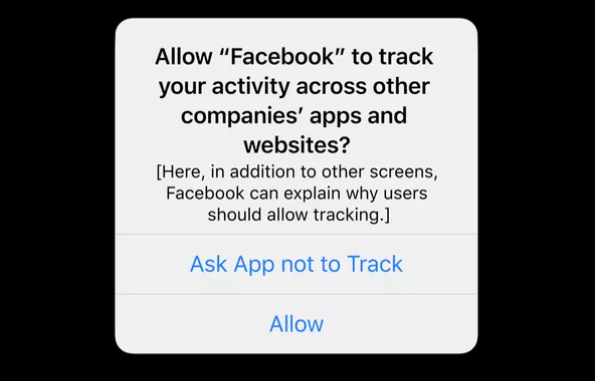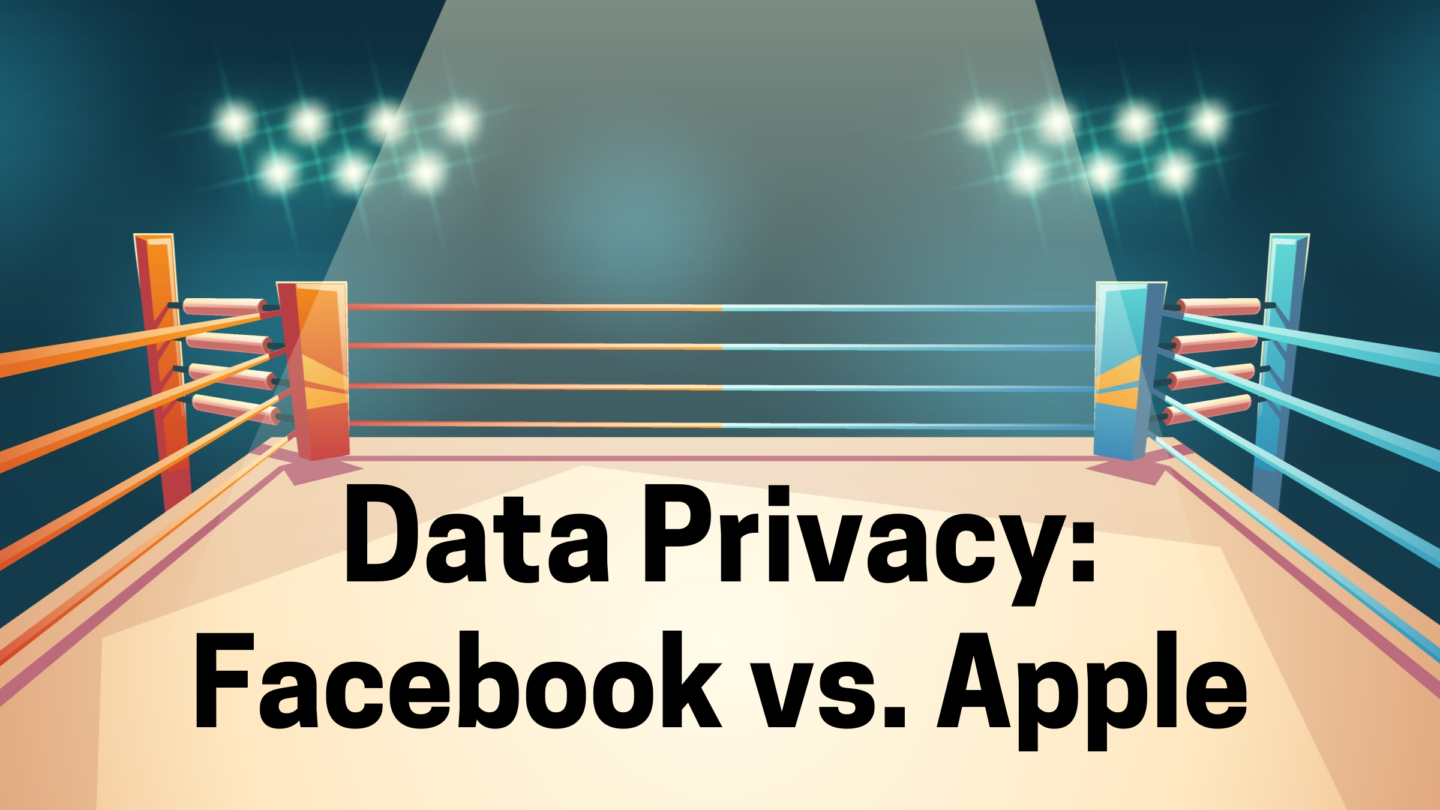Apple and Facebook, two of the biggest power players in the tech space, are at odds over the upcoming iOS 14 update — and things are starting to get ugly. The update includes one specific new feature that Apple is calling App Tracking Transparency. It includes a pop-up asking users if they’d like to allow the apps on their device to track their data — and this little pop-up is making Facebook very angry.

Why Is Facebook Mad?
Letting people proactively decide whether or not apps can track them could seriously limit Facebook’s data intake, and the social media giant is not having it. User data is a big part of Facebook’s ad revenue. It’s how marketers target their Facebook Ads to potential customers. Personalized advertising is a key part of successful digital marketing.
How Is Facebook Responding?
Facebook can’t do anything to block the update from coming out, or from having App Tracking Transparency applied to their app — but they can cause a stir. The company released a statement on Dec. 16 condemning the update and the downstream impacts it could have on small businesses. Their statement, written by Dan Levy, VP of Ads and Business Products, claims small businesses are the focus — not the impact this will have on Facebook’s own revenue.
“And yes, there will be an impact to Facebook’s diversified ads business, but it will be much less than what will befall small businesses, and we’ve already been factoring this into our expectations for the business.”
Dan Levy, VP Ads and Business Products at Facebook
The company also mentions that the update could impact free apps that rely on ads to be profitable, like games. Those apps make their money by tracking users and serving ads based on their activity. Facebook posits that these apps will need to begin charging subscription fees instead, which obviously impacts users — users who may not realize they’re currently paying for the app with their data instead of their dollars.
Also in the “cause a stir” category — Facebook has taken out full-page ads publicly criticizing Apple’s iOS update. Plus, they’re pushing banner notifications to some of their apps warning marketers that their ad efforts could be in jeopardy.
What Does Apple Have to Say?
Apple has been much less stir-causing in their response. They released a simple statement:
“We believe that this is a simple matter of standing up for our users. Users should know when their data is being collected and shared across other apps and websites — and they should have the choice to allow that or not. App Tracking Transparency in iOS 14 does not require Facebook to change its approach to tracking users and creating targeted advertising, it simply requires they give users a choice.”
So, What’s Going to Happen?
For now, it looks like the issue will continue to play out in the court of public opinion, but not in actual court (unlike the lawsuit the FTC just brought against Facebook). Insiders say Facebook has no intentions of quieting down about the update.
It’s an interesting game of chess Facebook is playing right now. The PR moves they’re making are very measured — it’s safe to say Facebook never does anything without a bigger plan (remember their acquisition of Kustomer, or their addition of subscription linking?).
So far, their attacks against Apple have zeroed in on supporting small businesses, but avoided getting specific about the complex data economy behind personalized ads. This suggests they expect the public isn’t going to react well once the reality of how much they’re being tracked sets in. It may be tough to convince people to share their data openly — we’re interested to see what Facebook does next to combat the update.
Key Takeaways:
Privacy standards around data tracking are on the rise, along with public awareness of the data economy underlying much of digital marketing. We’re approaching a time when users can proactively choose to share or suppress their data. How that will impact personalized advertising remains to be seen. Maybe we’re moving out of the “upgrade to a paid plan to get rid of ads” internet era and into a “will you be paying with dollars or data?” era instead.
Either way, there’s no need to panic over the downstream impact to your strategy just yet. But it’s a good time to double down on the basics. As always, your marketing efforts should ultimately focus on building your owned audience — a warm list you’re not likely to lose access to anytime soon.
